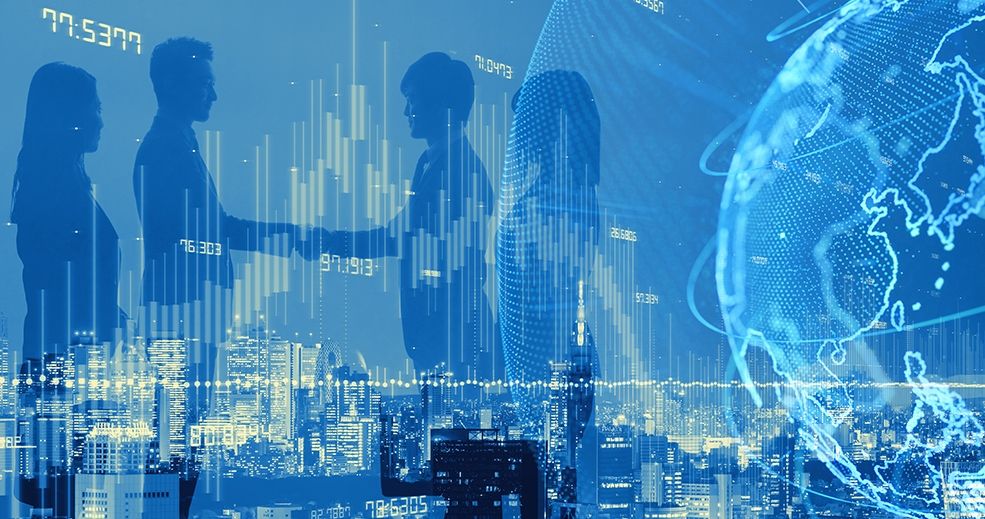
Each passing week brings more signs of China’s geopolitical containment by the United States and its allies.
For example, Japan has announced a financing plan to help countries bolster their defences, breaking with years of neutrality in this area (remember that Japan took part in a NATO summit in June 2022). The first beneficiary of this programme could be the Philippines, so as to help monitor Chinese activity in the region. The Philippines have also revealed the locations of four more military bases opened up to American soldiers to the south of Taiwan. On the economic front, however, not all the signs this week are pointing towards strict containment. Take, for example, this statement by Apple CEO Tim Cook during a visit to China to attend the China Development Forum. He apparently praised China’s ability to rapidly innovate (“I believe it will further accelerate…”) and reiterated the “symbiotic relationship” between Apple and China.
In truth, this kind of pursuit of Chinese innovation would be the exact opposite of what the US CHIPS Act is seeking to achieve: the Act aims to slow or even halt Beijing’s ascension in the most strategically important sectors. Tim Cook is even reported to have announced that Apple would be stepping up its investment in a rural education programme in China (where the company reportedly has 5 million registered developers). Meanwhile, photos of his visit to an Apple Store in Beijing went viral… Lastly, the Chinese Minister of Commerce met with not only Tim Cook but also executives from a number of other companies (Nestlé, Pfizer, Mercedes, BMW, etc.) to try, according to official press releases, to stabilise value chains (one can easily imagine that the main goal may have been to incentivise investors to remain in China).
While Tim Cook’s comments are clearly diplomatic in nature, they also highlight time lags – and even strategic gaps – between the respective realities of international geopolitics and business. For Apple and many other very large companies, they mainly highlight the need to maintain a minimum level of good relations with China, which continues to account for a chunk of their revenue, value chain and workforce. This illustrates the short-term disconnect between the desire of some western governments to decouple from China – at least in strategic sectors – and the slowness and difficulty of putting that desire into practice, especially for large groups with a local presence in China.
A step change in global perception
This also raises the deeper question of how closely corporate strategy should be aligned with national strategy. Can and should large groups have their own foreign policy? While this has been a hotly debated topic for years1, one thing is certain: even just a few years ago, the very idea felt like heresy, with most multinationals seeing themselves as operating within a paradigm in which “the most powerful law is not that of sovereignty but that of supply and demand”2. Companies even saw it as desirable to free themselves from government influence – especially those “metanationals” whose autonomous power had been held up since the 2000s as the flip side of weakening state power in the face of globalisation, which many at the time saw as inevitable. The irony! Except in those sectors most closely linked to national security, the situation was far from that summed up by Charles Wilson, CEO of automaker General Motors, who in 1953 said, “What’s good for General Motors is good for America”.
Since the war in Ukraine and the emergence of tensions in the Gulf of Taiwan, multinationals no longer need convincing of the threat posed by geopolitical risk: according to a survey by Oxford Analytica, 93% of them sustained losses last year as a result of geopolitics, compared with only 35% in 2020. And 42% of senior managers surveyed said they thought decoupling from China would accelerate, compared with 12% a year earlier. This is not only a huge shift in perception, it is undoubtedly also a lasting one, with global geopolitical instability now seen as the new normal. It will be some time before the global system returns to equilibrium and everyone begins to understand this.
The strategic triangle of forced alignment
But does this necessarily mean large groups will align themselves with their governments’ policy? Obviously, it all depends on the degree of military, legal and regulatory tension (and, above all, the expected degree of tension: an important difference, since scenarios can vary between the private, public and military sectors). It also depends on the nature of the businesses in question: sovereign funds and pension funds are quick to align, as are all companies operating in the new strategic sectors with which we are quickly becoming familiar: energy and critical metals essential to climate transition; innovative sectors (semiconductors, quantum computing, foodtech, etc.); and sectors crucial to the avoidance of disastrous shortages, such as pharmaceuticals. These are, broadly speaking, the contours of a strategic triangle within which there is a clear rationale for aligning with governments. It also depends on the country or region of influence: strategic hesitation is not the same in France as it is in Canada…
Cyberwarfare is also a powerful incentive for alignment, since it is an “invisible war” that is very hard to control. Moreover, because the technologies involved spill over into other areas, private sectors find themselves de facto allies with the defence sector in the global battle for data. Reputational risk now also plays a crucial role, as we’ve seen in Russia, and will no doubt help bring governments’ and large western groups’ foreign policy into alignment. Lastly, of course, it depends on how much coercive power governments can wield in their desire to affirm their national sovereignty, and how much latitude they have to “weaponise the economy”. The dollar’s dominance means the US government has a bit more firepower at its disposal than other countries…
In spite of all this, history offers plenty of examples of companies that have discreetly carried on doing business in the midst of geopolitical tension and even war. Elon Musk daily demonstrates his strategic independence on the issue of Ukraine, sometimes aligning himself with the US government but mostly following his own convictions. As far as China is concerned, the question now is not “merely” one of market size but, above all, of the profound interdependence of economic and industrial models between states and big tech companies, what Tim Cook calls a “symbiotic relationship”: the development of entire sectors of technology has benefited from China’s emergence, in the same way as it’s not possible to think about the rapid rise of the automobile without the oil sector or, ultimately, of the 1945 Quincy Agreement between Saudi Arabia and the United States.
The geopolitical crisis is also about the complexity and depth of value chains
In fact, the new technology sector has been tied to a model of globalisation via value chains – a model on which China itself has based its growth trajectory. This forms the geoeconomic core and institutional framework for the cycle of globalisation that now appears to have reached its limits. And the odds are that western governments will not make the same mistake with India: they will seek development opportunities there, under the trendy new banner of “friendshoring”, while limiting interdependence in the most strategic sectors of their value chains. India itself will also be looking to take what is beneficial from this new geoeconomic environment while being careful not to create new dependencies.
It is precisely on the basis of this criterion of security that globalisation will be reorganised and major groups will devise their foreign policy. And this is where governments and companies agree: the initial priority will be to build resilience to future shocks, with new strategies around planning, inventory, value chain redundancy, alliances, etc. Even where decoupling must happen, it will be necessary to proceed with caution so as to carefully manage a process that could endanger the global economy. The priorities are exactly the same in the public and private sectors, and the real guiding principle could well be the risk of shortages. For the time being, though, Apple is perfectly aligned with the US strategy of friendshoring in India: Tim Cook ended his trip with a visit to Delhi, where he opened India’s first bricks-and-mortar Apple Store, once again setting social media abuzz.
1 See, for example, “Why your company needs a foreign policy”, John Chipman, Harvard Business Review, 2016.
2 Parag Khanna, “These 25 companies are more powerful than many countries”, Foreign Policy, 2016.






